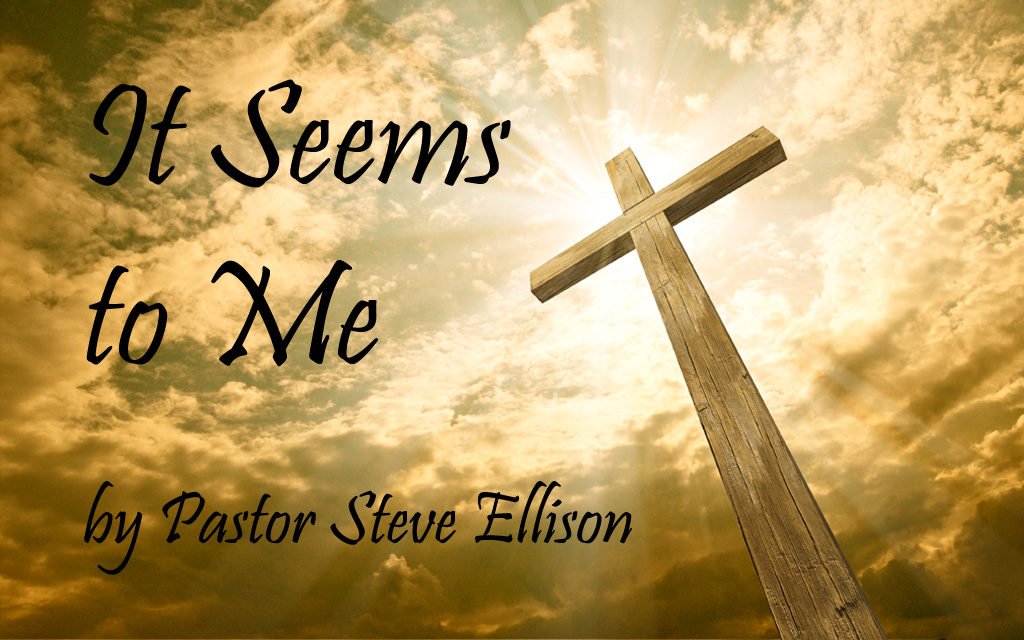by Pastor Steve Ellison
In Leviticus 25, God is in the middle of giving a code of various and sundry laws for His chosen people to live by. He tells them to let the land lay fallow every seventh year. In addition, they are not to harvest that which grows wild. That is a difficult, faith testing request for an agricultural society that knows nothing of Wal-Mart or Kroger. Leviticus 25:18-22 states, “You shall thus observe My statutes and keep My judgments, so as to carry them out, that you may live securely on the land. ‘Then the land will yield its produce, so that you can eat your fill and live securely on it. ‘But if you say, “What are we going to eat on the seventh year if we do not sow or gather in our crops?” Then I will so order My blessing for you in the sixth year that it will bring forth the crop for three years. ‘When you are sowing the eighth year, you can still eat old things from the crop, eating the old until the ninth year when its crop comes in.” (NASU) In v. 20, God anticipates their certain to be asked question, “What are we going to eat on the seventh year if we do not sow or gather in our crops?” God promises that the sixth year will yield enough for not only the seventh year but also for the eighth year. The promise also seems to imply that normal spoilage will not occur.
God often tests the faith of His children, but this instance seems a little different to me. Very seldom, in fact no other cases come to my mind, does God promise the blessing will arrive before the obedience. Considering my own tendencies, I imagine that despite the blessing of the three-fold harvest of the sixth year, that I would still worry greatly about the possibility of fire, insects, mold, thieves, water damage, etc. eliminating this great surplus. It makes little sense, but I can still see myself worrying that the God who brought about a miraculous three-fold harvest not being able to protect it. Sadly, little imagination is required to picture myself sneaking around planting small patches and harvesting all the wild plants I could under the cover of darkness.
Is God’s purpose simply to allow the land and the people to rest every seventh year? There is ample evidence that rest for both land and people provides several benefits, but I think God has a much higher purpose. Your Creator longs for His creation, His creatures, to worship Him. Proving your absolute, unconditional trust in Him is the supreme act of worship. Not planting food crops is a pretty emphatic indication of trust. It would be terribly difficult not to attempt to reserve the right to change your mind about that at a later time. However, in this case, once the time of planting is past, it is gone until the next year rolls around. A person could starve to death in that time! We oftentimes equate singing with worship, but worship is far more than just singing. Proving your absolute trust in your God by intentionally exposing yourself to the risk of starvation at His command and promise seems a most passionate form of worship that surely must be pleasing to God. It would also be a most compelling form of witness to a watching world. Let us worship and witness by obeying His leading regardless of the risk. He has proved Himself faithful and trustworthy forever.





